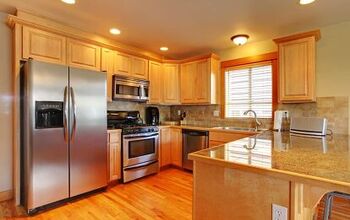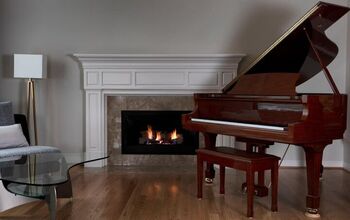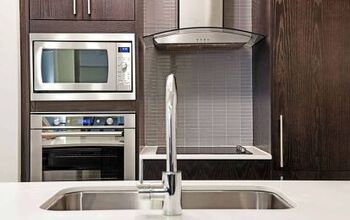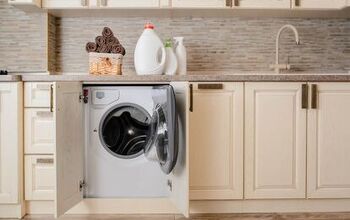Pellet Stove Is Making A High Pitched Noise? (Fix It Now!)

Imagine the following scene: you have just loaded up your pellet stove with some nice softwood pellets. You’re cold, and you’re ready to snuggle up to some extra heat. You turn on the pellet stove and ignite the flame, only to start hearing a high pitched, keening noise. The quiet and cozy night you had just got ruined! Worse, that noise is alarming.
If you’re in this position, it’s normal to panic. It sounds almost like a scream at times!
Pellet stoves that make a high-pitched noise often have heavy buildup in the feed motor or in the fines container. If the feed motor has been neglected for a long time, this could also be a cause for a screechy sound. However, if the noise continues to occur throughout the burn session, the most likely culprit is a fan blower that has gone bad.
The noise you’re hearing is pretty annoying, but it doesn’t have to stay a part of your home’s set of sounds. We’re going to help you figure out what’s going wrong and fix it.
Do You Need Stove Repair Services?
Get free, zero-commitment quotes from pro contractors near you.

How To Troubleshoot A Pellet Stove That Makes A Squealing Noise
That squealing noise you’re hearing is not as unusual as you might think. As far as things go, it’s actually kind of a common issue as pellet stoves begin to break down. We’re going to do a troubleshoot that addresses the easier potential causes first, then works up to the more expensive and difficult issues.
Heavy Buildup
Most of the time, a high-pitched squealing noise will happen when there’s too much buildup around the feed motor. This buildup can be a mixture of soot or crushed pellets, but that doesn’t matter. What matters is that it’s there and it’s impeding your machine’s ability to feed pellets into the burn area. Here’s how to fix it:
- Start by making sure your pellet stove doesn’t have anything burning in it. Let your stove cool down before you poke around in it.
- Open up the door to the burn area, and clean the interior. You may also need to pay extra attention to the burn pot area near the auger and feed chute. If you have a small enough hand vacuum, use it to get all the soot there.
- Next, move to the fines container and clear that out. This will help your feed run smoothly and avoid having grit get stuck in the feeder.
Bad Feed Motor
In order to get the pellets to burn in the appropriate area, you will need to have a feed motor usher them into that area. This motor is a great little thing, but it has its limitations. If your feed motor has started to rust or has stuff caught in it, there’s a good chance you’ll hear a squeaking, grinding noise. Sometimes, it can even sound like a screech.
Fixing a feed motor can be done one of two ways. If it just sounds like it needs some lubrication, pick up graphite powder. Add a handful of powder to a handful of pellets, and run them through the feeder. This will help your motor stay lubricated, which will hopefully clear up things.
If you still hear squeaking or squealing when you try to feed the pellets into the burn pot, then you may need to replace the feed motor. Bearings can go bad, ya know. With that said, we definitely suggest looking at the next part of our troubleshooter before you replace the motor.
Bad Fan Bearings
A pellet stove needs to have a fan that blows wind into the burn chamber, otherwise, the pellets won’t burn. This is what the blower motor and fan are for. Both of these elements have rotating bearings that make it easier for wind to be pushed through the system. When bearings go bad, they will start to squeak. If left for too long, that noise will turn into a screech.
Bearings often need to be soaked in oil or a similar lubricant in order to have their squeaks reduced. With that said, the squeaks are usually a symptom of a blower motor or fan that needs to be replaced. While you can add some lubricant as a temporary fix, it’s often better to address the issue with a new blower motor or fan.
How Can You Tell Which Bearing Is Causing The Squeaking?
There are a lot of different parts that could have bearings that scream. The best way to figure it out is to get access to the part that you suspect and manually turning the parts that rotate. In most cases, the bearings that need replacement will start to squeak when you turn them by hand. This is the most surefire way to make sure you don’t replace the wrong part.
With that said, listening for the timing of the squeaks can also give you a clue. For example, if your pellet stove is currently feeding items into your burning point, then the feed motor probably is the part that has gone bad. On the other hand, if the scream is almost constant, then it probably is the fan or blower motor.
How Much Does It Cost To Fix A Pellet Stove That Won’t Stop Squeaking?
The price that you should expect to pay will be in the middle of the road as far as pellet stove repairs go. Replacing a blower motor, fan, or feeder motor will cost between $250 to $500 for most pellet stove models. If you have a stove that has unusually pricey bearings, then you may have more money to worry about.
Some pellet stove repair companies will also charge an additional diagnostic fee. This typically is around $40 to $60 as a starter fee. The fee often comes as a part of the overall repair costs. If you choose to replace the bearings or fix the stove on your own, the price you pay will generally only be for parts.
The price for parts can range from $50 to $175 for a blower motor, to around $100 for a new feeder motor. Needless to say, many people find it to be financially easier to forgo professional repairs.
Where Can You Find A Pellet Stove Repairman?
It is oh, so easy to want to hire a repairman for everything, but sometimes, it’s not that simple. Finding a pellet stove repairman is often harder than you’d expect it to be. The best way to find one is to look for a fireplace repair company near you, or to call up your local fireplace installation company to find out if they do repairs.
Since pellet stoves tend to be somewhat niche in many parts of the country, it can be a struggle to find a place that can help you out. If all else fails, a good go-to is to seek out a handyman who has some experience with wood stoves or fireplaces. Handymen have enough general “know-how” to be able to do most repairs fairly reliably.
Another option that you can pursue, particularly if your stove is somewhat new, is to call your stove manufacturer. Most pellet stoves come with warranties that involve links to people and companies that can fix your stove. Even if your stove isn’t under warranty, the company might be able to point you in the direction of a good repair crew.
Do You Need Stove Repair Services?
Get free, zero-commitment quotes from pro contractors near you.

Related Questions
How long should a pellet stove last?
Pellet stoves are made to be a durable part of your home’s setup, so they shouldn’t fall apart too soon. A typical pellet stove will last for at least 15 to 20 years, given regular maintenance procedures. It’s not unusual for these stoves to last as long as 25 to 30 years if they are a top-tier model.The best way to determine how long your particular model should last is to check out the warranty. The longer the warranty, the more likely it is to last for several decades rather than 15 years or so.
Is graphite powder toxic?
Graphite powder may be used as a rather uncommon lubricant, but that doesn’t mean you should panic. Graphite powder is fairly nontoxic. It’s basically pure carbon, so it’s not like it can burn “dirty.” Many people use it as a safer alternative to oils like gasoline or lubricants that haven’t been tested. As long as you use it responsibly, there is no reason to be worried about any kind of danger it could pose.
Should I be worried if my pellet stove is making a low humming noise?
While a screeching noise is never normal, it’s worth remembering that pellet stoves are known for making some noises. If you hear a low hum or subtle buzzing noise coming from your pellet stove, don’t panic. Most pellet stoves will make a low humming noise as they operate. This is not a sign of a problem. It’s just the way that they are made.If you want to go for a noiseless model, you might have to pay extra. Even then, they may not be entirely silent, so it’s best to keep that in mind.
Related Guides

Ossiana Tepfenhart is an expert writer, focusing on interior design and general home tips. Writing is her life, and it's what she does best. Her interests include art and real estate investments.
More by Ossiana Tepfenhart



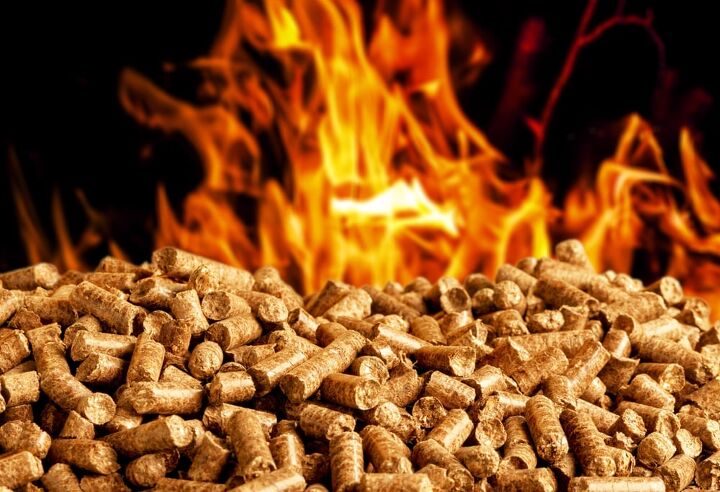










![The 5 Best Angle Grinders – [2022 Reviews & Buyer's Guide]](https://cdn-fastly.upgradedhome.com/media/2023/07/31/9071326/the-5-best-angle-grinders-2022-reviews-buyer-s-guide.jpg?size=350x220)
